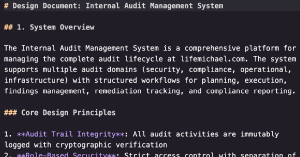In the ever-evolving software development landscape, using outdated frameworks poses significant challenges for developers and organizations. As technology advances at an unprecedented pace, the reliance on older frameworks can impede progress, compromise security, and hinder the ability to leverage the latest innovations. This article overviews the problems associated with using old frameworks.
Security Concerns
One of the primary issues with using old frameworks is the heightened risk of security vulnerabilities. As technology evolves, so do the methods and tools used by malicious actors to exploit weaknesses in software. Older frameworks may lack the robust security features and updates to defend against modern threats. Organizations using outdated frameworks may inadvertently expose their systems to security breaches.
Limited Features and Capabilities
Advancements in technology bring about new features and capabilities that enhance the efficiency and performance of software applications. Older frameworks may lack the support for these modern features, leaving developers with limited capabilities. This affects the user experience and hinders the development of innovative solutions.
Compatibility Issues
As software ecosystems evolve, compatibility becomes a critical concern. Old frameworks may struggle to integrate seamlessly with newer technologies, libraries, and third-party services. This can result in a time-consuming and resource-intensive process of retrofitting or adapting the existing codebase to work with the latest components. Incompatibility issues can impede collaboration, slow development cycles, and make it challenging to adopt emerging best practices.
Decreased Developers Productivity
Working with outdated frameworks can hinder developer productivity. Developers may spend more time troubleshooting compatibility issues, dealing with deprecated features, and addressing security concerns rather than focusing on implementing new features and improvements. This affects project timelines and contributes to developer frustration and burnout.
Lack of Community Support
A vibrant and active developer community is crucial for addressing challenges, sharing knowledge, and finding solutions. Old frameworks often suffer from a diminishing or non-existent community support base, making it difficult for developers to seek help, find relevant documentation, or access community-contributed resources. This lack of support can leave developers isolated, facing issues without the benefit of collective wisdom and shared experiences.
Innovation is crucial in software development. Using outdated frameworks poses clear obstacles. To overcome these challenges, developers and organizations might need to prioritize staying current with technology trends, adopting modern frameworks, and regularly updating their software stacks. The cost of maintaining legacy systems might be substantial in terms of security risks and missed opportunities for growth and innovation. Embracing change and investing in up-to-date technologies is not just a matter of keeping pace with the industry; it’s a strategic imperative for long-term success in the dynamic world of software development.










